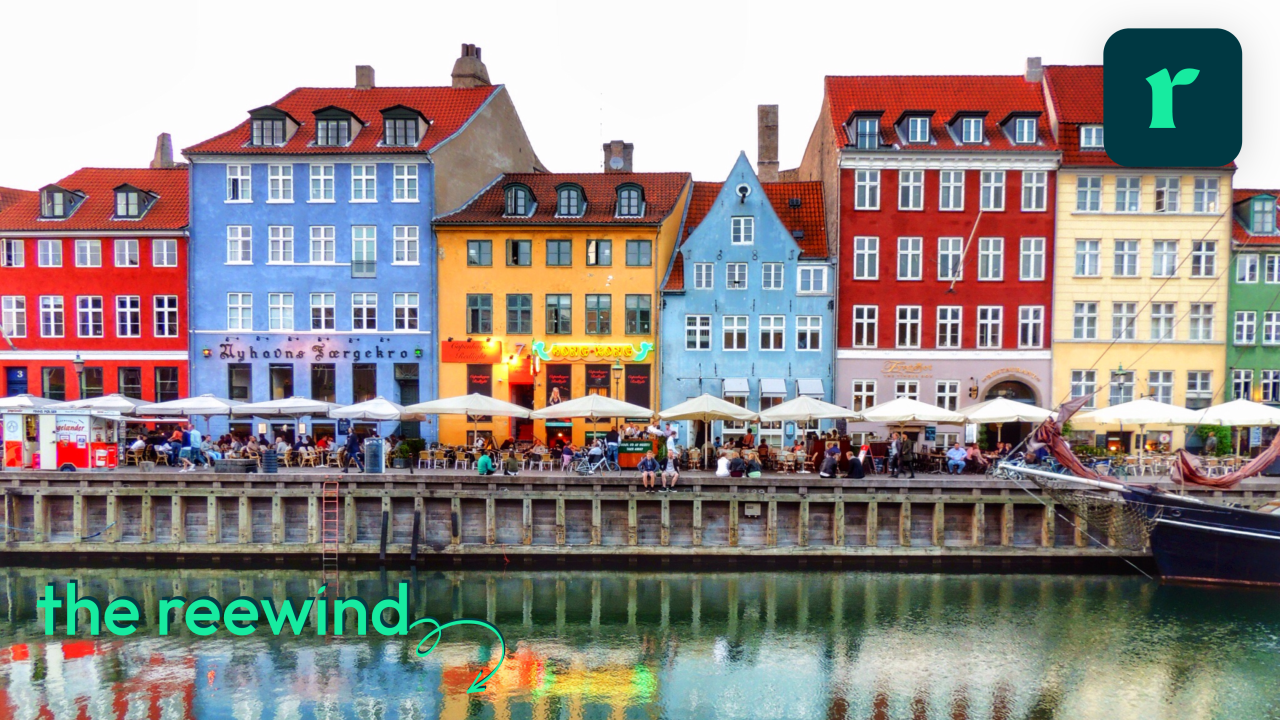
Our Top Stories
Eating to fix the planet: Positive News reports on WWF’s new Eating for Net Zero report, which maps out a diet that doesn’t deviate drastically from current British eating habits, but is much kinder to the planet and equal in cost. The report outlines a few examples of simple shifts we can make as consumers. This includes 83% more ‘lower-footprint seafood’ (such as mussels and sardines), a 50% boost in beans and pulses, and 45% more fruit and veg. WWF CEO Tanya Steele makes it clear that “achieving a healthy, sustainable diet is possible – without everyone having to go vegetarian, vegan, or give up treats”. [Positive News]

Deforestation surging: Thred outlines new study findings, which show an area the size of Switzerland was cleared from Earth’s most pristine rainforests last year, suggesting that world leaders’ commitment to halt the destruction by 2030 is failing. This is according to a new report by the World Resources Institute (WRI), which has revealed that between the Bolivian Amazon and Ghana, the equivalent of 11 football pitches of primary rainforest were destroyed in every minute of 2022. We already face a rapid acceleration of the climate crisis, and without rainforests, the threat will only continue to worsen. [Thred]
Food sector forces: Speciality Food looks into the forces that are shaping the future of food and drink, identifying climate change and new technology as the two main disruptors. These forces also act in tandem, with the continual need to create solutions to address challenges like climate change fostering an innovation spurt in the food and drink sector. For retailers and brands, it’s vital not to ignore these changes, particularly as consumers increasingly seek out high environmental standards and innovative products. [Speciality Food]
Business Spotlight - BM Caterers
BM Caterers has joined forces with nutritional software company Nutritics’ sustainability consultancy arm, Knowledge Labs, to be the first company to pilot a new sustainability awareness educational programme. Since the workshops, BM reports there has been a 56% increase in awareness of sustainability and its importance to the planet among its team members. Since rolling carbon labelling out in their restaurants last year, they have continued on their sustainability journey by providing further environmental education to involve every team member in their Net Zero strategy. [FMJ]
Research Corner
Lacking snow cover: Yisu Jia and her team have found that there has been a significant decline of snow cover in the Northern hemisphere over the last half century. Snow cover plays a major role in global energy balance, continental thermal stability, and regional temperatures. Since the study took four years to complete, the researchers believe this is the first truly dependable analysis of snow cover trends in the Northern hemisphere due to the rigour of the researchers' statistical methods. The findings bring a stark warning to the North, as it becomes more likely that we will lose a valuable asset in the fight against climate change. [AMS]

Stat Attack
“Adopting a healthy, sustainable diet could deliver a 36% reduction in global greenhouse gas emissions and a 20% reduction in biodiversity loss compared to the average UK diet – without ditching meat and dairy.”
Source: WWF Eating for Net Zero
The Big Picture

About Reewild
The food and agriculture industry is at the heart of the climate crisis, generating around a third of man-made greenhouse emissions. And while the challenge of reducing its impact may seem beyond our grasp, it is one that we all have the power to tackle.
We believe that the solution lies in climate transparency. That’s why we’re equipping businesses with the means to evaluate and communicate the emissions of their products. This, in turn, means consumers are armed with credible, independent information, which can be used to make more sustainable choices.
We know that many people want to take climate action but lack the necessary tools and information to do so. We're confident that, armed with the right knowledge, everyone can and will do their bit to build a greener, more sustainable food system.
Download the Reewild app
Follow us on social media
https://www.instagram.com/reewild.earth/
https://www.linkedin.com/company/reewild/


.png)
.png)


